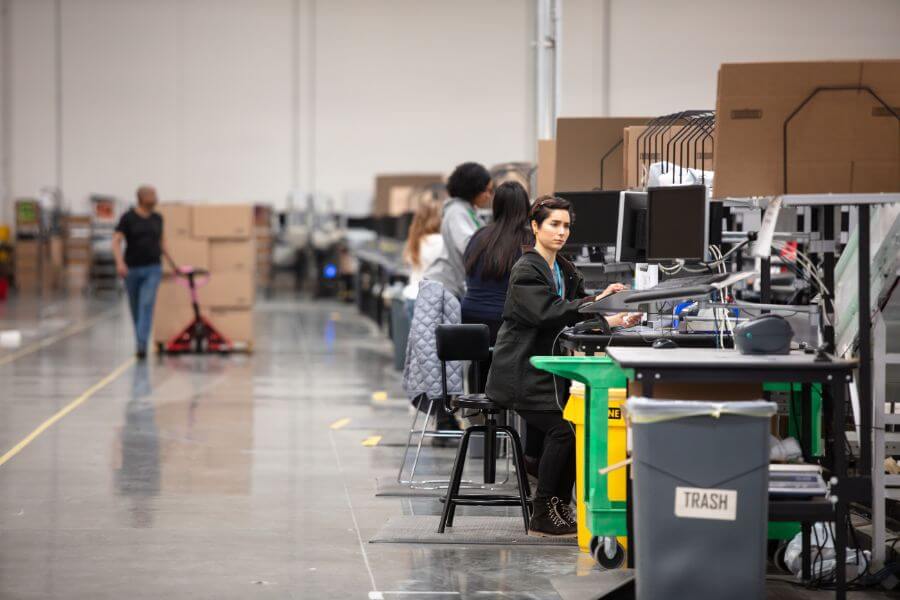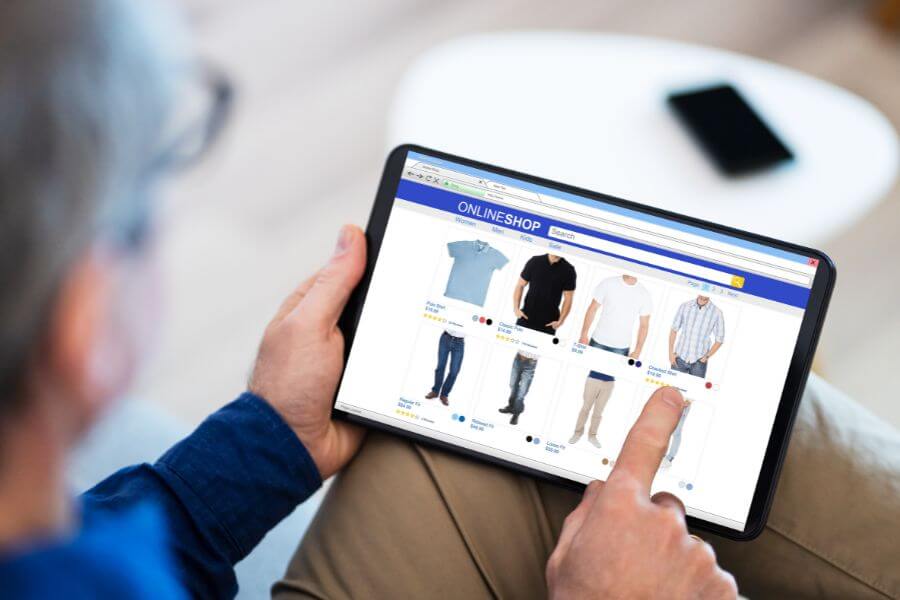As we move further into 2024, the ecommerce landscape continues to evolve rapidly. With this evolution comes a host of misconceptions about ecommerce fulfillment companies. These misconceptions can lead businesses to make uninformed decisions, potentially hindering their growth and success. Let’s debunk the top 10 most common myths about ecommerce fulfillment companies in 2024.
Misconception 1
Fulfillment companies are only for large businesses
One of the most persistent myths about ecommerce fulfillment companies is that they cater exclusively to large businesses with high order volumes. This couldn’t be further from the truth in 2024.
Many fulfillment companies now offer flexible solutions tailored to businesses of all sizes. Whether you’re a small startup or a medium-sized enterprise, there are fulfillment partners ready to meet your needs. These companies understand that small businesses often have the potential for rapid growth, and they’re eager to support that journey.
In fact, outsourcing fulfillment can be particularly beneficial for smaller businesses. It allows them to focus on core activities like product development and marketing while leaving the complexities of order processing and shipping to the experts. This can lead to faster growth and improved customer satisfaction, regardless of the business’s current size.
Misconception 2
Outsourcing fulfillment is too expensive
Another common misconception is that partnering with a fulfillment company is prohibitively expensive, especially for businesses operating on tight budgets. While there are costs associated with outsourcing fulfillment, it’s important to consider the bigger picture.
In reality, working with a fulfillment company can often lead to significant cost savings in the long run. Here’s why:
- Reduced overhead. You don’t need to invest in warehouse space, equipment, or a large workforce.
- Economies of scale. Fulfillment companies handle large volumes of orders, allowing them to negotiate better rates with shipping carriers.
- Improved efficiency. Professional fulfillment operations are optimized for speed and accuracy, reducing errors and returns.
- Scalability. You can easily scale your operations up or down without major investments or layoffs.
When you factor in these benefits, the cost of outsourcing fulfillment often proves to be lower than handling everything in-house, especially as your business grows.
Misconception 3
You lose control over your brand experience
Many businesses fear that outsourcing fulfillment means losing control over the customer experience and brand presentation. This concern is understandable but largely unfounded in 2024.
Modern fulfillment companies recognize the importance of brand identity and customer experience. They offer a range of customization options to ensure your brand shines through at every touchpoint:
- Custom packaging and inserts
- Branded packing slips and shipping labels
- Special handling for fragile or luxury items
- Gift wrapping services
Moreover, advanced technology allows you to maintain visibility and control over your inventory and orders. Many fulfillment companies provide real-time tracking and reporting, giving you insights into every stage of the fulfillment process.
Misconception 4
Fulfillment companies are all the same
The belief that all fulfillment companies offer identical services is a dangerous misconception. In 2024, the fulfillment industry is more diverse than ever, with companies specializing in different niches and offering unique value propositions.
Some fulfillment companies excel in handling perishable goods, while others specialize in eco-friendly packaging. Some focus on high-volume, low-cost fulfillment, while others cater to luxury brands with white-glove service.
When choosing a fulfillment partner, it’s crucial to look beyond basic services and consider factors such as:
- Industry expertise
- Technology integration capabilities
- Geographic locations and shipping networks
- Value-added services (e.g., kitting, returns management)
- Customer support quality
Finding the right fit for your specific needs can make a significant difference in your business’s efficiency and customer satisfaction.
Misconception 5
Fulfillment companies can't handle complex orders
There’s a persistent myth that fulfillment companies struggle with complex orders, such as those involving multiple items, customizations, or special packaging requirements. This misconception often leads businesses to believe they must handle such orders in-house.
In reality, many modern fulfillment companies are well-equipped to handle complex orders efficiently. They use advanced warehouse management systems (WMS) and robust processes to manage:
- Kitting and bundling
- Personalization and customization
- Subscription box assembly
- Special packaging requirements
- Multi-channel orders
These capabilities allow businesses to offer diverse product offerings and complex promotions without worrying about fulfillment challenges.
Misconception 6
Fulfillment companies are only about shipping
While shipping is a crucial part of what fulfillment companies do, it’s far from their only function. In 2024, fulfillment companies offer a wide range of services that go well beyond simply getting packages out the door.
Modern fulfillment companies often provide:
- Inventory management. Real-time tracking, reorder alerts, and inventory optimization.
- Returns processing. Efficient handling of returns, including inspections and restocking.
- Order management. Integration with your sales channels for seamless order processing.
- Analytics and reporting. Insights into sales trends, inventory performance, and shipping metrics.
- Customer service support. Some fulfillment companies offer customer service capabilities to handle shipping-related inquiries.
By leveraging these additional services, businesses can streamline their operations and improve overall efficiency.
Misconception 7
Fulfillment companies can't integrate with my systems
There’s a common fear that working with a fulfillment company will require a complete overhaul of existing systems and processes. This misconception can deter businesses from exploring fulfillment partnerships.
In 2024, integration capabilities have become a key focus for fulfillment companies. Most modern providers offer robust API integrations and partnerships with popular ecommerce platforms, marketplaces, and ERP systems. This allows for seamless data flow between your sales channels, inventory management system, and the fulfillment center.
Moreover, many fulfillment companies now offer no-code integration options, making it easier than ever to connect your systems without extensive technical knowledge or resources.
Misconception 8
Fulfillment companies can't handle international orders
As ecommerce continues to break down geographical barriers, some businesses worry that fulfillment companies can’t effectively manage international orders. This misconception can limit a company’s growth potential in global markets.
In reality, many fulfillment companies in 2024 are well-equipped to handle international shipments. They offer services such as:
- Multiple international shipping options
- Customs documentation preparation
- Duty and tax calculation
- Compliance with international shipping regulations
Some fulfillment companies even operate global networks of warehouses, allowing for local fulfillment in key markets. This can significantly reduce shipping times and costs for international orders.
Misconception 9
Switching to a fulfillment company is too disruptive
There’s a prevalent belief that transitioning to a fulfillment company will cause significant disruptions to business operations. This fear of disruption can prevent businesses from making a change, even when their current fulfillment processes are inefficient.
While any major change requires careful planning, modern fulfillment companies have streamlined their onboarding processes to minimize disruptions. Many offer:
- Phased transitions to gradually shift inventory and operations
- Dedicated onboarding teams to guide you through the process
- Comprehensive training on their systems and processes
- Temporary hybrid solutions that allow for a smoother transition
With proper planning and the right partner, the switch to a fulfillment company can be smooth and cause minimal disruption to your business.
Misconception 10
Fulfillment companies can't adapt to rapid changes
The final misconception we’ll address is the belief that fulfillment companies are slow to adapt to changes in the market or in a business’s needs. This concern is particularly relevant in the fast-paced world of ecommerce, where agility can be a key competitive advantage.
In 2024, leading fulfillment companies pride themselves on their flexibility and adaptability. They understand that ecommerce businesses need partners who can quickly adjust to:
- Seasonal fluctuations in demand
- Sudden spikes in orders (e.g., from viral marketing campaigns)
- Changes in product lines or packaging
- New sales channels or markets
Many fulfillment companies use advanced forecasting tools and flexible staffing models to rapidly scale operations up or down as needed. They also regularly update their technology and processes to stay ahead of industry trends and changing customer expectations.
Conclusion
As we’ve seen, many common beliefs about ecommerce fulfillment companies in 2024 are outdated or simply incorrect. By understanding the realities of modern fulfillment services, businesses can make more informed decisions about their logistics strategies.
Partnering with the right fulfillment company can provide numerous benefits, including cost savings, improved efficiency, enhanced customer experience, and the ability to scale operations quickly. It allows businesses to focus on their core competencies while leaving the complexities of order fulfillment to the experts.
As you consider your fulfillment options, it’s important to look beyond these misconceptions and evaluate potential partners based on their specific offerings, technology capabilities, industry expertise, and alignment with your business goals. With the right fulfillment partner, you can position your ecommerce business for success in the dynamic and competitive landscape of 2024 and beyond.





